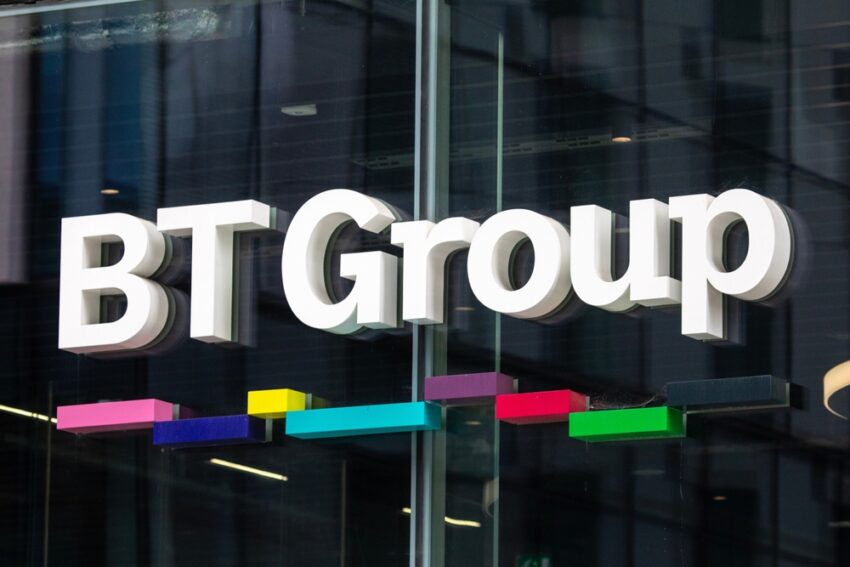BT Group is reportedly considering plans to launch a new low-cost mobile brand as part of a potential strategy to compete with a wave of new market entrants – including fintech heavyweights Revolut and Monzo, both of which are preparing to launch mobile services.
According to the Financial Times, the UK's largest telecoms company is assessing whether to develop a budget brand in-house or acquire an existing virtual network operator (MVNO) as it looks for opportunities to re-enter the value end of the mobile market.
Such a move would represent a strategic shift for BT, which currently only offers mobile services through its premium EE brand, and has focused its Plusnet subsidiary on broadband since a restructuring last year.
The push comes as virtual network operators – companies that lease capacity from established networks such as EE, Vodafone and Three – expand rapidly, set to account for 16.5% of the UK mobile market in 2024, according to Ofcom. Analysts expect the share to grow due to lower costs and intensified competition among digital-first providers.
Fintech companies are among the latest entrants. Revolut and Monzo, which boast a combined user base of more than 13 million UK customers, are preparing to launch mobile plans as part of wider efforts to diversify revenue streams and strengthen customer loyalty through bundled financial and telecommunications services.
Buy now-pay-later provider Klarna is also moving into mobile with Fern Trading, part of the Octopus Group investment empire, which is building telecoms assets across the UK.
“Fintechs are blurring the lines between banking, payments and connectivity,” said James Barford, head of telecom research at Anders Analysis. “They already control the digital interface with consumers – moving into mobile services is a natural extension of that ecosystem.”
BT's exploration into the low-cost segment is being led by Chief Executive Alison Kirkby, who took the helm earlier this year. Kirkby is understood to be looking at ways to strengthen customer acquisition in a saturated market and broaden BT's appeal beyond its high-end EE brand.
Industry sources told the FT that the plan is backed by Indian billionaire and Bharti Enterprises founder Sunil Bharti Mittal, who becomes BT's largest shareholder in 2024 after acquiring French-Israeli telecoms magnate Patrick Drehi's stake.
The potential move is in line with Mittal's strategic focus on affordability and market scale – principles that underpin his success with Airtel, one of India's largest mobile networks.
The telecoms group is also reviewing the position of its BT consumer brand, which enjoys strong recognition among older customers. Executives are said to be considering reviving BT-branded broadband and mobile bundles, aimed at targeting more traditional users less familiar with the company's new brands, EE and Plusnet.
BT's own research reportedly found that brand familiarity remains a key factor in attracting and retaining older customers, especially as rivals emphasize simplicity and value.
“EE has become a high-performing brand for premium users,” said Sarah Hall, telecoms consultant at Pegasus Strategy. “But the mass market is where the volume growth lies – and this is where fintech challengers are attacking first.”
In response to the reports, BT issued a brief statement: “We regularly review our offering across all our brands to ensure our customers have access to the best products and services on the best networks. At present, there are no plans to change our mobile offering.”
However, analysts say BT's silence may reflect early-stage deliberations rather than a rejection of the idea. The group faces increasing pressure to protect its consumer market share, as value-driven entrants such as Giffgaff, Smarty and Voxie continue to lure younger users with flexible, app-based contracts and transparent pricing.
The UK mobile market is undergoing one of the most significant changes in years due to digital disruption, consolidation and rising costs of network investment.
BT already faces competitive pressure following the Vodafone-Three merger, while also grappling with the challenge of monetizing its billions of pounds of investment in 5G infrastructure.
Meanwhile, fintech companies see telcos as an attractive gateway into everyday digital services – allowing them to bundle banking, payments and connectivity under one app and use rich data insights to drive growth.
“If Revolut and Monzo succeed in transforming mobile services into a lifestyle ecosystem, it could redefine customer loyalty in both finance and telecommunications,” said Dr Anna Pickering, senior lecturer in digital economy at King's College London. “BT and the legacy networks cannot ignore this.”
While BT emphasizes that no formal decisions have been made, the discussion highlights that the rapid convergence between telecoms and fintech is forcing incumbents to innovate or risk losing relevance among younger, mobile-first consumers.
If BT goes ahead, a low-cost mobile brand could not only protect its domestic market share but also serve as a strategic counterweight to digital challengers seeking to erode the dominance of Britain's established networks.
Either way, the battle for the UK's mobile future is no longer just about connectivity – it's about who controls customer relationships in an increasingly digital world.










